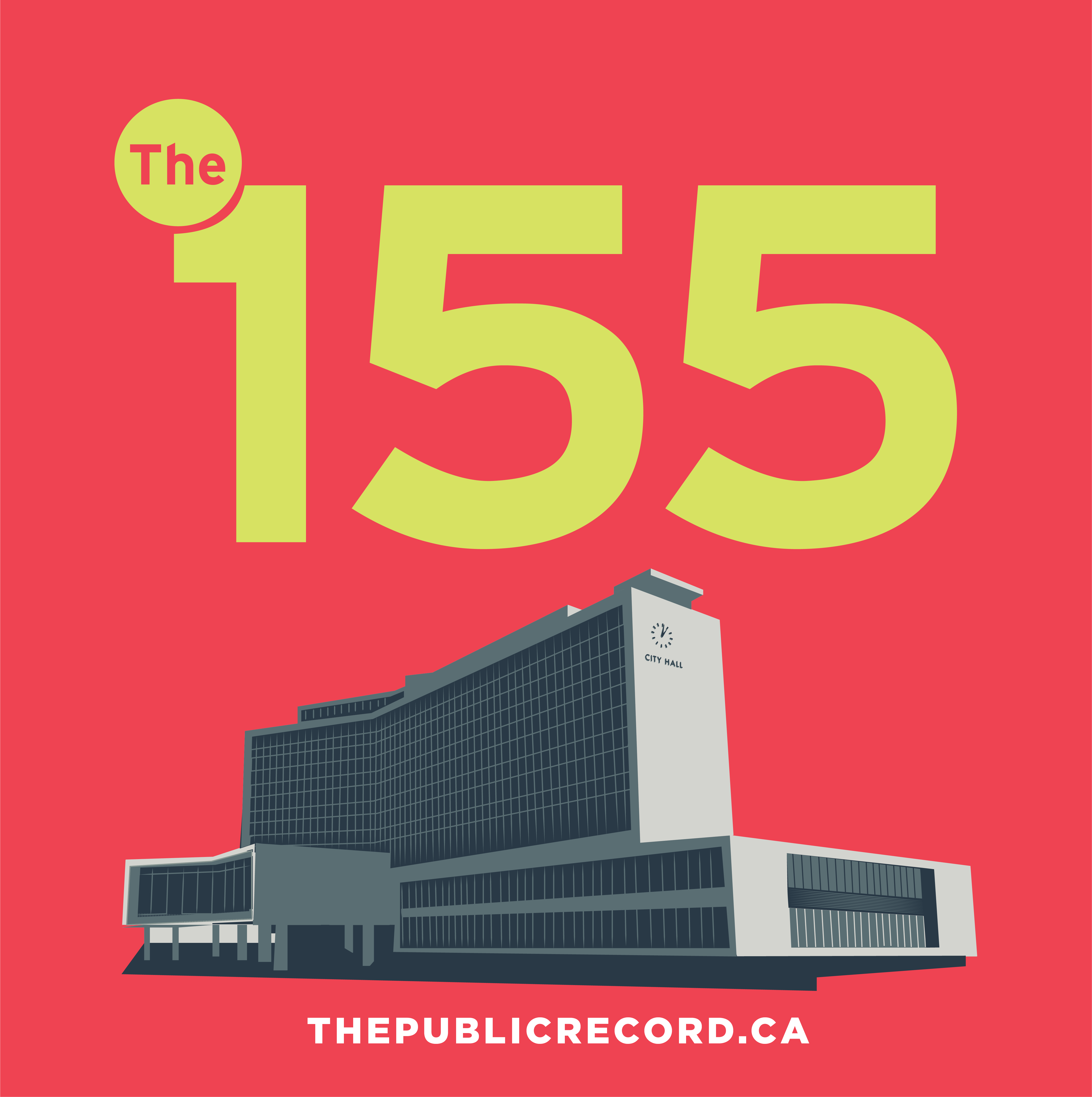The 155 Election Podcast is back for the 2022 municipal election.
In 2018, the podcasts successfully provided voters with the opportunity to hear from all candidates as they articulated their election platforms, explained why they seek to serve as an elected official, and what qualifications they bring to elected office.
The podcast questions are structured to enable listeners to easily compare candidates, and for candidates to have a roadmap to pitch their vision to voters.
The 155 is a job interview, for public office.
The Structure of the Questions
For City Council candidates, the questions are structured as follows:
Opening questions, who are you and why are you running, provide candidates the opportunity to introduce themselves and quickly summarize their reasons for running.
Eight “open” questions allow candidates to articulate eight platform planks of their choosing: two city-wide priorities, two ward priorities, two changes to improve City services, and two changes to improve quality of life in Hamilton.
The three skills question enables candidates to articulate why their skill set is a good fit for being a City Councillor, much as one experiences in a job interview.
Two questions on accountability, transparency, and good governance ask candidates to articulate how they will balance the need sometimes for matters to be kept confidential with the expectation of openness in government.
The LRT construction question asks candidates to share how they will balance and manage the challenges of this transformative construction project.
The something interesting or unique question serves to provide a break for the candidate, interviewer, and listener between a series of challenging questions. Think of it as the comic-relief act so common to theatre and movies.
Land-use planning (including transportation) questions get to the heart of the most time-consuming and difficult part of being a municipal councillor. Approving and managing difficult change. This is a challenging series of questions because voters are divided on what constitutes good planning. The questions are structured to be specific to circumstances in each ward, and to require thoughtful articulate answers.
Road Safety, everyone wants to know what plans candidates have to decrease the number of deaths and injuries along Hamilton’s roadways. The question asked candidates to articulate their plan, and how they will achieve it.
The 10,000 hours question. How will candidates gain knowledge to be effective leaders and make well-informed decisions? This is a job interview-style question.
The three words question asks candidates to summarize themselves in three words, and then summarize their hopes for the 2022-26 term of City Council in three words.
A Few Tips for Preparation
Be well hydrated. This ensures your vocal cords do not become dry, improving your voice quality for the interview.
Do not read a script. Seriously. It is monotonous to listen to. Voters stop listening.
Prepare.
Voters will listen to the podcast while they are exercising, preparing dinner, commuting to work, gardening, etc.
Think about what platform planks you wish to articulate.
What are the key points you wish to convey in your answers, and how can you do so concisely.
Index cards can be helpful and assist in keeping your thoughts organized. Use bullet points.
This is a full-length door pitch. Do you read off your campaign literature when you are canvassing door-to-door?
You don’t, because you know your platform and voters are busy – they are not going to stand around while you read your script.
Do not use your smartphone for notes. You will end up fiddling with your phone. Your voice quality decreases when you tilt your head down to read notes on a smartphone.
Voters are the Audience; They are Listening to Our Conversation
People enjoy listening to a good conversation. Think about the podcasts you most enjoy. They have a conversational format.
The format of The 155 is designed to keep the focus on the candidates.
I, Joey Coleman, as the interviewer, seek to ask the questions and only inject myself if absolutely necessary because a candidate is not answering a question, their answer requires further clarity in the moment, or the candidate is clearly lying beyond any reasonable doubt.
[In 2018, a candidate lied about where they live.]
The presence of the interviewer (me) provides you (the candidate) with someone to focus your answers towards.
See you at your interview.

